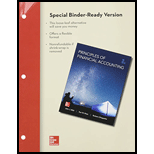
1. a.
Calculate break-even point in dollar sales for plan 1.
1. a.
Explanation of Solution
Break-even Point: It refers to a point in the level of operations at which a company experiences its revenues generated is equal to its costs incurred. Thus, when a company reaches at its break-even point, it reports neither an income nor a loss from operations. The formula to calculate the break-even point in dollar is as follows:
Calculate breakeven point in dollar sales for plan 1.
Working notes:
Calculate variable cost per unit.
Determine the contribution margin ratio.
Hence, the break-even point in dollar sales for plan 1 is $750,000.
1. b.
Calculate break-even point in dollar sales for plan 2.
1. b.
Explanation of Solution
Break-even Point: It refers to a point in the level of operations at which a company experiences its revenues generated is equal to its costs incurred. Thus, when a company reaches at its break-even point, it reports neither an income nor a loss from operations. The formula to calculate the break-even point in dollar is as follows:
Calculate breakeven point in dollar sales for plan 2.
Working notes:
Calculate sales price per unit.
Calculate variable cost per unit.
Determine the contribution margin ratio.
Hence, the break-even point in dollar sales for plan 2 is $700,000.
2.
Prepare a
2.
Explanation of Solution
Contribution Margin: It is defined as the difference between the sales and the variable cost.
Contribution margin income statement: Contribution margin income statement highlights the cost behavior as sales minus variable costs and shows the contribution margin. It also shows contribution margin minus fixed costs and finds the net income of the company.
Prepare a
| Company B | ||
| Forecasted Contribution Margin Income Statement | ||
| Plan 1 | Plan 2 | |
| Sales | $1,000,000 | $1,080,000 |
| Less: Variable costs | $300,000 | $270,000 |
| Contribution margin | $700,000 | $810,000 |
| Less: Fixed costs | $525,000 | $525,000 |
| Income before taxes | $175,000 | $285,000 |
| Less: Income taxes (30%) | $52,500 | $85,500 |
| Net income | $122,500 | $199,500 |
Working notes:
Calculate the amount of sales for plan 1 and plan 2.
Calculate the amount of variable costs for plan 1 and plan 2.
Want to see more full solutions like this?
Chapter 21 Solutions
Principles of Financial Accounting, Chapters 1-17 - With Access (Looseleaf)
- I am trying to find the accurate solution to this general accounting problem with appropriate explanations.arrow_forwardThe actual cost of direct labor per hour is $29.75 and the standard cost of direct labor per hour is $31.20. The direct labor hours allowed per finished unit is 0.85 hours. During the current period, 7,500 units of finished goods were produced using 4,100 direct labor hours. How much is the direct labor rate variance?arrow_forwardPlease provide the accurate answer to this general accounting problem using appropriate methods.arrow_forward
- Mia Steel started the year with total assets of $325,000 and total liabilities of $174,000. During the year the business recorded $360,000 in revenues, $190,000 in expenses, and dividends of $99,000. Stockholders' equity at the end of the year was____.arrow_forwardGeneral accounting questionarrow_forwardCanyon Ridge Inc. has the following Contribution Margin Income Statement: Unit Selling Price: $520 • Total Sales: $3,120,000 • Variable Costs: $410 per unit • Total Variable Costs: $2,460,000 Fixed Costs: $540,000 Question: At this level of activity, what is Canyon Ridge Inc.'s operating leverage factor?arrow_forward

 AccountingAccountingISBN:9781337272094Author:WARREN, Carl S., Reeve, James M., Duchac, Jonathan E.Publisher:Cengage Learning,
AccountingAccountingISBN:9781337272094Author:WARREN, Carl S., Reeve, James M., Duchac, Jonathan E.Publisher:Cengage Learning, Accounting Information SystemsAccountingISBN:9781337619202Author:Hall, James A.Publisher:Cengage Learning,
Accounting Information SystemsAccountingISBN:9781337619202Author:Hall, James A.Publisher:Cengage Learning, Horngren's Cost Accounting: A Managerial Emphasis...AccountingISBN:9780134475585Author:Srikant M. Datar, Madhav V. RajanPublisher:PEARSON
Horngren's Cost Accounting: A Managerial Emphasis...AccountingISBN:9780134475585Author:Srikant M. Datar, Madhav V. RajanPublisher:PEARSON Intermediate AccountingAccountingISBN:9781259722660Author:J. David Spiceland, Mark W. Nelson, Wayne M ThomasPublisher:McGraw-Hill Education
Intermediate AccountingAccountingISBN:9781259722660Author:J. David Spiceland, Mark W. Nelson, Wayne M ThomasPublisher:McGraw-Hill Education Financial and Managerial AccountingAccountingISBN:9781259726705Author:John J Wild, Ken W. Shaw, Barbara Chiappetta Fundamental Accounting PrinciplesPublisher:McGraw-Hill Education
Financial and Managerial AccountingAccountingISBN:9781259726705Author:John J Wild, Ken W. Shaw, Barbara Chiappetta Fundamental Accounting PrinciplesPublisher:McGraw-Hill Education





